Understanding the Legal Drinking Age Punta Cana Dominican Republic What You Need to Know
Punta Cana, located on the eastern coast of the Dominican Republic, is renowned for its stunning beaches, crystal-clear waters, and luxurious all-inclusive resorts. As one of the Caribbean’s premier vacation destinations, it attracts millions of tourists each year from around the world, eager to experience its picturesque landscapes and vibrant culture. With its reputation for providing an idyllic tropical getaway, it is essential for travelers to be aware of local laws and regulations, particularly concerning the drinking age Punta Cana Dominican Republic.
Understanding the legal drinking age and related regulations in Punta Cana is crucial for ensuring a smooth and enjoyable vacation. The Dominican Republic, like many countries, has specific laws governing the sale and consumption of alcohol, and these laws can vary significantly from those in travelers’ home countries. For instance, while many visitors might be accustomed to different legal drinking ages or norms, Punta Cana’s legal drinking age is set at 18 years old. Familiarity with these laws helps avoid potential legal issues and enhances the overall travel experience.
This essay aims to provide a comprehensive guide to the legal drinking age in Punta Cana and the Dominican Republic. By exploring the local regulations, enforcement practices, and practical tips for alcohol consumption, the essay will help tourists navigate these rules effectively. The goal is to equip travelers with the necessary knowledge to enjoy their vacation responsibly while adhering to local laws, thereby ensuring a hassle-free and memorable stay in this beautiful Caribbean paradise.
I. What is the Drinking Age in the Dominican Republic?
A. Legal Drinking Age Regulations
In the Dominican Republic, the legal drinking age is set at 18 years old. This regulation aligns with the country’s efforts to establish a responsible drinking culture while catering to a significant number of young adults who visit the region for its vibrant nightlife and luxury resorts. The legal drinking age of 18 is fairly typical among Caribbean nations, though some islands set their age limits higher. For example, places like the Bahamas and Jamaica also have a minimum drinking age of 18, while other Caribbean destinations, such as Barbados, enforce a higher age limit of 21.
This age limit reflects the country’s commitment to regulating alcohol consumption among its population and visitors. It is designed to ensure that individuals are legally deemed mature enough to make informed decisions regarding alcohol use. This policy is part of a broader framework aimed at promoting public health and safety, reducing underage drinking, and preventing related issues such as drunk driving.
B. Impact on Tourists
Punta Cana, being a prime vacation spot, attracts a diverse range of tourists, including many young adults who are of legal drinking age. Common age groups among visitors include college students on spring break, young couples, and early-career professionals. This demographic often expects to engage in activities that include drinking alcohol, whether at bars, beach parties, or resort events. Therefore, understanding and adhering to local drinking laws is crucial for maintaining a seamless holiday experience.
However, there can be a discrepancy between tourist expectations and local regulations. Many visitors from countries with different drinking age laws might assume that the regulations in Punta Cana will be more lenient, given its reputation as a party destination. This misunderstanding can lead to confusion and unintended legal issues, especially for those who are under 18. For instance, a tourist who is 17 years old might mistakenly believe that they can legally consume alcohol in the Dominican Republic, which is not the case.
Additionally, resorts and bars in Punta Cana are required to adhere to local drinking laws, and violations can lead to penalties for both establishments and individuals. Tourists might find that enforcement is strict, and attempts to bypass the legal age restrictions can result in serious consequences. For example, minors attempting to purchase or consume alcohol might have their drinks confiscated and could face legal repercussions or be asked to leave the premises.
Overall, while Punta Cana offers a wide array of drinking and entertainment options for those who are 18 and older, it is essential for tourists to be aware of and respect local laws. Understanding the legal drinking age helps ensure that visitors enjoy their time responsibly and avoid any complications that could mar their vacation experience.
II. Underage Drinking in the Dominican Republic
A. Legal Consequences
In the Dominican Republic, underage drinking is treated with strict legal consequences. The country has implemented comprehensive laws to deter minors from consuming alcohol and to prevent adults from providing alcohol to individuals under the legal drinking age of 18. Violating these laws can result in significant penalties for both minors and adults involved.
For minors, the legal repercussions of attempting to purchase or consume alcohol include fines and potential legal action. If a person under 18 is found drinking alcohol, they can face fines and other legal consequences, such as mandatory community service or attendance at educational programs about the dangers of underage drinking. Additionally, the establishment serving the minor may be penalized, which can include fines or even suspension of their liquor license, depending on the severity of the violation.
Adults who provide alcohol to minors also face severe penalties. It is illegal for parents, guardians, or any other adults to supply alcohol to individuals under 18. If caught, adults can be subject to hefty fines and legal proceedings. The law aims to hold not only the minors accountable but also those who enable underage drinking. This legal framework is designed to create a deterrent effect, ensuring that alcohol consumption remains within the bounds of the law and that young people are protected from the potential harm associated with early exposure to alcohol.
B. Enforcement Practices
The enforcement of drinking age laws in the Dominican Republic is rigorous, particularly in Punta Cana, a major tourist destination. Bars, clubs, and restaurants are required to adhere strictly to local regulations, and they play a crucial role in preventing underage drinking. Establishments are trained to check the identification of patrons to verify their age before serving alcohol. Failure to comply with these regulations can result in serious consequences for the business, including fines and potential legal action.
In addition to internal enforcement by businesses, local law enforcement plays a vital role in monitoring and regulating alcohol consumption. Police officers and other authorities conduct regular inspections and patrols to ensure that establishments are not serving alcohol to minors. They also respond to complaints and reports of illegal alcohol distribution, which helps maintain the integrity of the drinking age laws.
The presence of law enforcement is particularly noticeable during peak tourist seasons and in high-traffic areas, where the likelihood of encountering underage drinking issues is greater. This proactive approach aims to prevent illegal activities and ensure that both locals and tourists comply with the legal drinking age regulations.
Overall, the enforcement of underage drinking laws in the Dominican Republic reflects the country’s commitment to responsible alcohol consumption. By implementing stringent penalties and actively monitoring compliance, the Dominican Republic strives to protect its youth and maintain a safe environment for all its residents and visitors.
III. Alcohol Consumption in Punta Cana’s All-Inclusive Resorts
A. Resort Policies
In Punta Cana’s all-inclusive resorts, alcohol consumption is managed under specific policies designed to align with both local laws and the resorts’ own regulations. Typically, the legal drinking age of 18 years old is enforced within these resorts. This means that guests must be at least 18 to purchase or consume alcoholic beverages on the premises. These policies reflect a commitment to adhere to Dominican Republic laws while catering to the expectations of adult travelers seeking an all-inclusive experience.
However, there are often differences between the resort policies and local laws. While the legal minimum drinking age in the Dominican Republic is 18, some resorts implement additional restrictions to enhance guest safety and comfort. For example, resorts might establish their own rules for alcohol service during certain hours, or they may have stricter enforcement of age checks during busy periods. Additionally, some resorts have policies limiting the amount of alcohol served to guests in an effort to prevent overindulgence and ensure a safe environment for everyone.
B. Common Practices
To manage and monitor alcohol consumption, all-inclusive resorts in Punta Cana employ several practices. One of the primary methods is the use of wristbands or identification cards, which guests receive upon check-in. These wristbands often denote the guest’s age and eligibility to consume alcohol. Resort staff are trained to check these wristbands or IDs before serving drinks, ensuring that only guests of legal drinking age are served alcohol. This system helps streamline the enforcement of drinking age regulations and reduces the risk of serving alcohol to minors.
In addition to age verification, resorts monitor alcohol consumption to promote responsible drinking. Many resorts have policies that limit the number of drinks a guest can order at one time, especially during peak hours. This helps manage alcohol intake and prevents excessive drinking, which can lead to safety issues and disrupt the resort’s atmosphere. Staff are trained to recognize signs of intoxication and are empowered to refuse service if a guest appears overly inebriated. This practice is not only a legal requirement but also a measure to maintain a pleasant and safe environment for all guests.
Instances of rule enforcement at resorts can vary. While most resorts enforce their policies consistently, there are occasional reports of conflicts or misunderstandings between staff and guests. For instance, a guest might be frustrated if they are refused service due to intoxication, leading to complaints or disputes. Resorts typically address these situations by explaining the reasons behind their policies and offering alternative solutions, such as providing non-alcoholic beverages or suggesting other activities.
Overall, Punta Cana’s all-inclusive resorts strive to balance enjoyment and responsibility. By implementing rigorous age verification processes and monitoring alcohol consumption, these resorts aim to provide a safe and enjoyable experience for all guests while adhering to local laws and regulations.
IV. The Legal Drinking Age on Punta Cana Beaches
A. Beachside Regulations
Punta Cana’s stunning beaches are a major draw for tourists, offering a picturesque setting for relaxation and recreation. While the beaches themselves are largely public spaces, there are specific regulations governing alcohol consumption that visitors should be aware of.
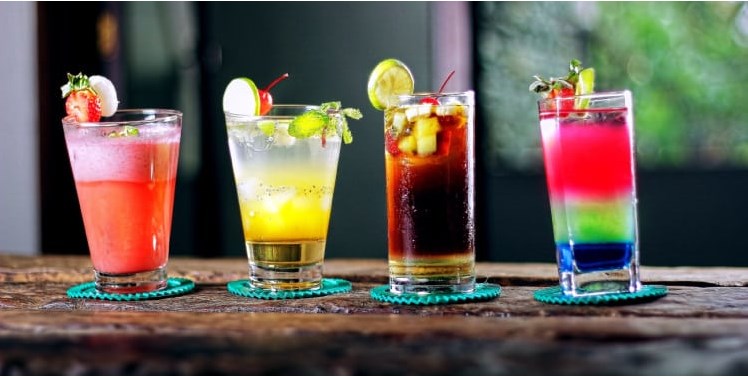
Drinking alcohol on the beach in Punta Cana is generally permissible within the confines of the local regulations and the policies of the resorts. Unlike bars and clubs, where strict age verification and enforcement are standard, beachside drinking has its own set of rules. Generally, guests staying at all-inclusive resorts can enjoy alcoholic beverages on the beach as long as they adhere to the resort’s policies. However, this often means that while guests can bring drinks from the resort to the beach, alcohol consumption is limited to beverages provided by or approved by the resort to maintain control over service and prevent issues.
For public beaches outside resort areas, the regulations can be less clear. While alcohol consumption is not explicitly banned on most public beaches, the enforcement of such rules can vary. Local authorities and beach security may monitor these areas to ensure that laws regarding public drunkenness and littering are followed. It’s essential for visitors to be mindful of their surroundings and avoid behaviors that could attract unwanted attention from law enforcement.
B. Practical Tips for Tourists
For tourists wishing to enjoy their time on Punta Cana’s beaches while consuming alcohol, several practical tips can help ensure a smooth and enjoyable experience:
- Respect Resort Policies: If staying at an all-inclusive resort, be sure to follow the resort’s rules regarding alcohol consumption on the beach. This often involves using the resort’s provided beverages and adhering to any restrictions they may impose. Failure to do so can result in violations of resort policies and potentially impact your stay.
- Understand Local Regulations: Even if local enforcement on public beaches is lax, it is still important to understand and respect the broader legal framework. Avoid public drunkenness, as it can lead to legal issues or altercations with law enforcement. Being discreet and responsible helps prevent any potential conflicts and ensures a positive experience.
- Stay Hydrated and Safe: Drink plenty of water alongside alcoholic beverages to stay hydrated, especially in the hot Caribbean sun. Excessive alcohol consumption can lead to dehydration, sunburn, or other health issues. Use sunscreen, wear appropriate clothing, and keep a balanced approach to drinking.
- Dispose of Trash Properly: Always dispose of empty bottles and cans properly to maintain cleanliness and avoid fines. Littering can result in fines and contributes to environmental degradation, which detracts from the natural beauty of the beaches.
- Travel with Identification: Carry a valid ID to verify your age if needed. While the beaches themselves may not have strict checkpoints, having identification handy can prevent potential issues, especially if approached by law enforcement or beach security.
By following these guidelines, visitors can enjoy Punta Cana’s beautiful beaches while respecting local laws and regulations. Adhering to both resort policies and local rules ensures a hassle-free experience and helps maintain the serene environment that makes Punta Cana a sought-after destination.
V. Alternative, Non-Alcoholic Beverages
A. Variety of Options
Punta Cana’s vibrant dining and drinking scene offers a diverse range of non-alcoholic beverages, catering to those who prefer to avoid alcohol or seek a refreshing alternative. Whether you’re at a luxurious resort, a beachside bar, or a local café, you’ll find an array of non-alcoholic options designed to suit various tastes and preferences.
Popular Non-Alcoholic Beverages:
- Tropical Mocktails: These are non-alcoholic versions of popular cocktails, often made with fresh fruits and exotic flavors. Examples include the Virgin Piña Colada, which blends pineapple juice, coconut milk, and ice for a creamy, refreshing drink, and the Virgin Mojito, featuring mint, lime, sugar, and soda water for a zesty and invigorating experience. Other favorites include the Mango Tango and the Passion Fruit Cooler, which use tropical fruits to create vibrant, flavorful beverages.
- Non-Alcoholic Beers: Many resorts and bars offer non-alcoholic beers, providing the taste of traditional beer without the alcohol content. These beers are brewed to mimic the flavors of their alcoholic counterparts, such as lagers and ales, and are ideal for those who enjoy the beer experience without the effects of alcohol.
- Fresh Juices and Smoothies: Punta Cana’s abundance of fresh fruits lends itself well to a variety of juices and smoothies. Pineapple, mango, papaya, and coconut are commonly used to create delicious and nutritious beverages. Freshly squeezed juices and blended fruit smoothies are popular choices, offering a healthy and refreshing option.
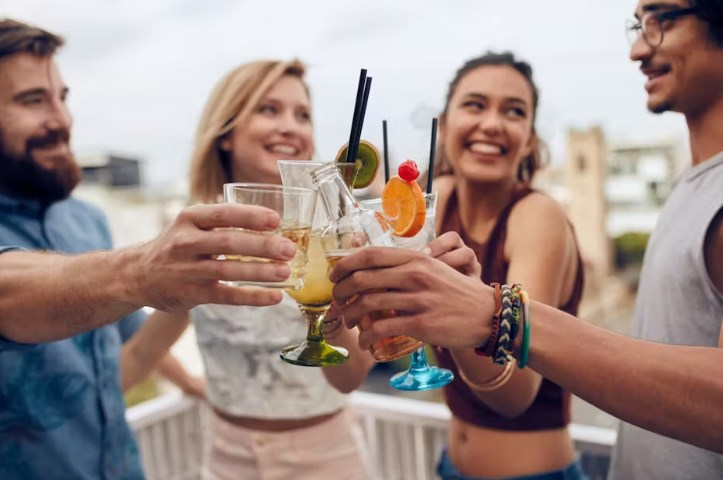
B. Benefits of Non-Alcoholic Choices
Choosing non-alcoholic beverages comes with several health and social benefits, making them an appealing option for many visitors:
- Health Benefits: Non-alcoholic beverages can contribute to better health and well-being. They provide hydration without the dehydrating effects of alcohol and can be a healthier choice, especially for those watching their calorie intake or avoiding alcohol for medical reasons. Tropical juices and smoothies also offer essential vitamins and nutrients, supporting overall health while allowing you to enjoy the local flavors.
- Encouraging Responsible Drinking: Opting for non-alcoholic options can promote responsible drinking behaviors among groups. It allows individuals to participate in social settings without the effects of alcohol, reducing the risk of overindulgence and ensuring that everyone can enjoy the festivities. Non-alcoholic choices also provide a way for those who prefer not to drink alcohol to feel included in social activities.
- Social Inclusivity: Offering a variety of non-alcoholic beverages ensures that everyone can enjoy themselves, regardless of their drinking preferences. It fosters an inclusive atmosphere where individuals who choose not to drink can still engage in social interactions and activities. This inclusivity enhances the overall experience for all guests, making gatherings more enjoyable and accommodating for diverse groups.
In summary, Punta Cana offers a rich selection of non-alcoholic beverages that cater to a wide range of tastes and preferences. By choosing from these options, visitors can enjoy the tropical flavors of the region while benefiting from healthier choices and promoting responsible drinking. These alternatives enhance the social experience by including everyone in the enjoyment of their vacation, ensuring a memorable and inclusive trip to this beautiful Caribbean destination.
VI. Booking Tours and Activities in Punta Cana
A. Planning Ahead
Importance of Pre-Booking Tours and Activities
Planning ahead is crucial when visiting a popular destination like Punta Cana. Pre-booking tours and activities offers several advantages, ensuring a smoother and more enjoyable vacation experience. By arranging excursions before arrival, you can secure spots for popular tours that might fill up quickly, particularly during peak travel seasons. This proactive approach prevents last-minute disappointments and guarantees that you won’t miss out on must-see attractions or experiences.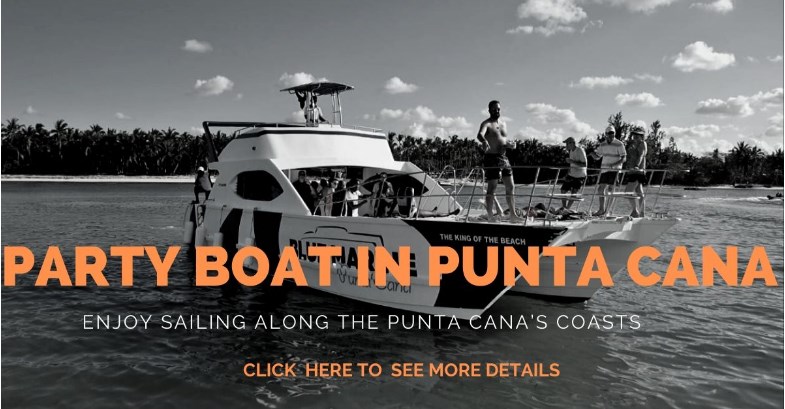
Benefits of Arranging Excursions Before Arrival
- Guaranteed Availability: Popular tours and activities, such as catamaran cruises, zip-lining adventures, and snorkeling trips, often have limited slots. Booking in advance ensures that you have a spot reserved and helps avoid the risk of these activities being fully booked by the time you arrive.
- Time Management: Pre-booking allows you to efficiently plan your itinerary. By knowing which activities you have scheduled, you can better manage your time and ensure a balanced vacation that includes both relaxation and adventure.
- Cost Savings: Early booking often provides opportunities for discounts and special offers. Many tour operators and activity providers offer lower rates for bookings made in advance, allowing you to save money compared to booking on the spot.
- Reduced Stress: Arranging activities ahead of time reduces the stress of planning while on vacation. You can focus on enjoying your time in Punta Cana without worrying about last-minute arrangements or potential availability issues.
B. Excursion Options
Popular Tours and Activities in Punta Cana
Punta Cana offers a wide array of excursions and activities, catering to diverse interests and preferences. Some of the most popular options include:
- Catamaran Cruises: Enjoy a relaxing day on the water with a catamaran cruise. These excursions often include snorkeling stops, where you can explore vibrant coral reefs and marine life. Cruises may also offer opportunities for swimming and sunbathing, providing a leisurely and picturesque experience.
- Zip-Lining Adventures: For thrill-seekers, zip-lining through the lush Dominican rainforest is an exhilarating experience. Soaring above the canopy, you can take in breathtaking views of the natural landscape and enjoy an adrenaline-pumping adventure.
- Snorkeling and Diving: Punta Cana is renowned for its crystal-clear waters and diverse marine life. Snorkeling and diving tours offer the chance to explore underwater ecosystems, including coral reefs and shipwrecks, making it a must-do for ocean enthusiasts.
- Cultural Tours: Immerse yourself in the local culture with tours that explore Dominican history, traditions, and cuisine. Visits to nearby villages, historical sites, and local markets provide insight into the region’s heritage and daily life.
How Booking in Advance Can Enhance the Vacation Experience
Booking excursions in advance enhances your vacation experience in several ways. Firstly, it allows you to secure your preferred tours and activities, ensuring that you get to experience everything on your wish list. Secondly, advanced bookings often come with the benefit of detailed information and personalized recommendations, helping you choose the best options suited to your interests.
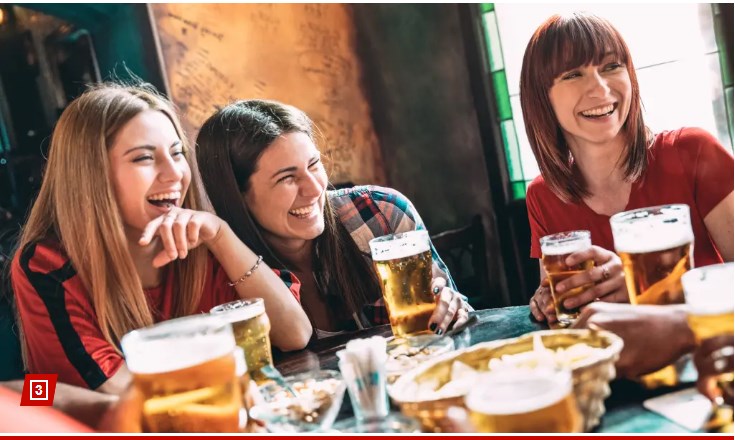
Furthermore, having a pre-arranged itinerary means you can enjoy a well-organized trip with fewer uncertainties and more focus on enjoyment. By planning ahead, you can avoid the rush and hassle of arranging activities last minute, leading to a more relaxed and enjoyable vacation.
In summary, booking tours and activities ahead of your trip to Punta Cana provides numerous benefits, from ensuring availability to saving costs and reducing stress. By taking the time to plan and book in advance, you can enhance your vacation experience and make the most of your time in this beautiful Caribbean destination.
In summary, understanding the legal drinking age and related regulations in Punta Cana is crucial for ensuring a smooth and enjoyable vacation experience. The legal drinking age in the Dominican Republic, including Punta Cana, is 18 years old. This age restriction is enforced in various settings, including all-inclusive resorts, public beaches, and local bars and clubs. Resorts often have their own policies in place to manage alcohol consumption responsibly, and adherence to these rules helps maintain a safe and enjoyable environment for all guests.
It is important to recognize the legal consequences of underage drinking and the enforcement practices that ensure compliance with local laws. Resorts and local authorities take these regulations seriously, and tourists should be aware of the potential penalties for violations. By respecting these regulations and the rules set by your resort, you contribute to a more enjoyable and trouble-free vacation.
Additionally, exploring alternative non-alcoholic beverages can enhance your experience in Punta Cana. With a wide variety of tropical mocktails, non-alcoholic beers, and fresh juices available, visitors can enjoy refreshing and flavorful options while promoting responsible drinking. These choices not only support health and well-being but also foster inclusivity in social settings.
In conclusion, respecting local laws, including the drinking age Punta Cana Dominican Republic, and making informed choices about alcohol consumption ensures a memorable and trouble-free trip to Punta Cana. By planning ahead, adhering to legal and resort-specific regulations, and exploring diverse beverage options, you can make the most of your vacation while contributing to a positive experience for yourself and others. Enjoy your time in Punta Cana responsibly, and savor all the wonderful experiences this beautiful destination has to offer.
Age -Do Edibles Make You Age Faster? A Comprehensive Look at the Long-Term Effects of Cannabis
Your Complete Guide to Safe & Legal Child Travel, Including Booster Seat Age Florida Requirements
Championing Transparency and National Security: The Inspiring Journey of PSVF Fellow Ana Bower and Anna Bower’s Age
Consent for Routine Medical Care A Comprehensive Guide, Including What is the Age of Consent in Virginia
Navigating the Complexities of Consent Washington Age of Consent, Sexting, and Legal Implications
Understanding Sexual Consent Laws and the Virginia Legal Age of Consent in the Commonwealth
Travis bagent’s age “The Beast” The Unstoppable Force in Arm-Wrestling’s History and His Age
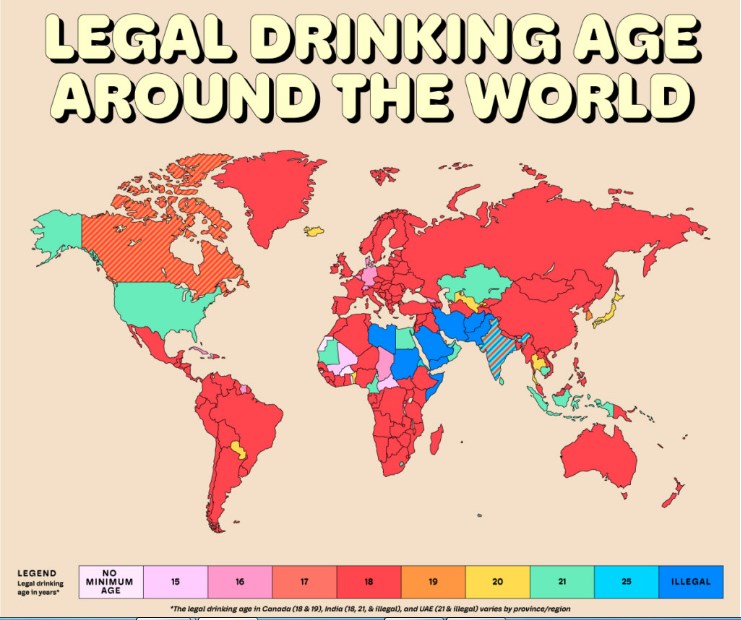
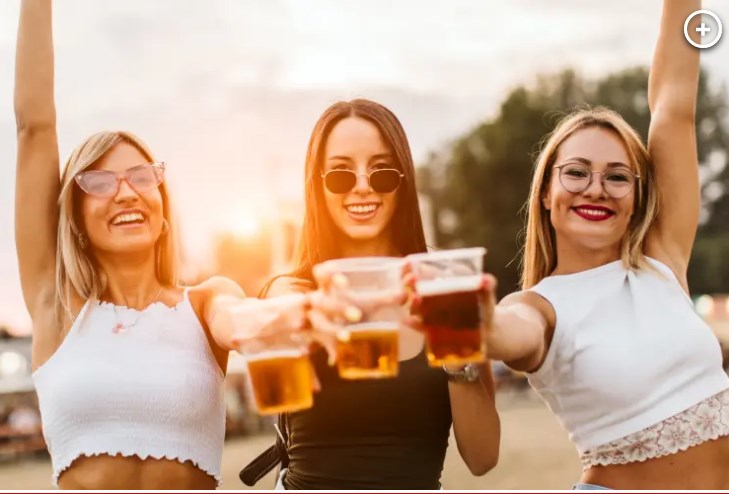
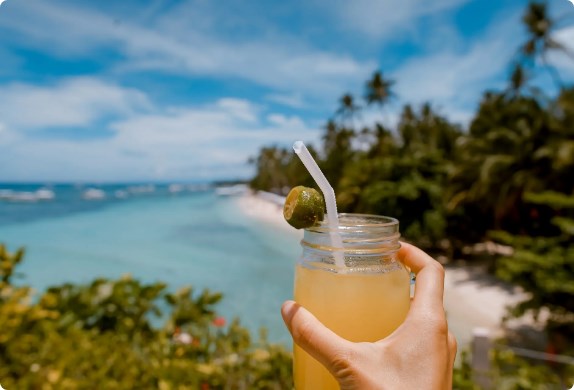
 | Sitemap | Mail
| Sitemap | Mail